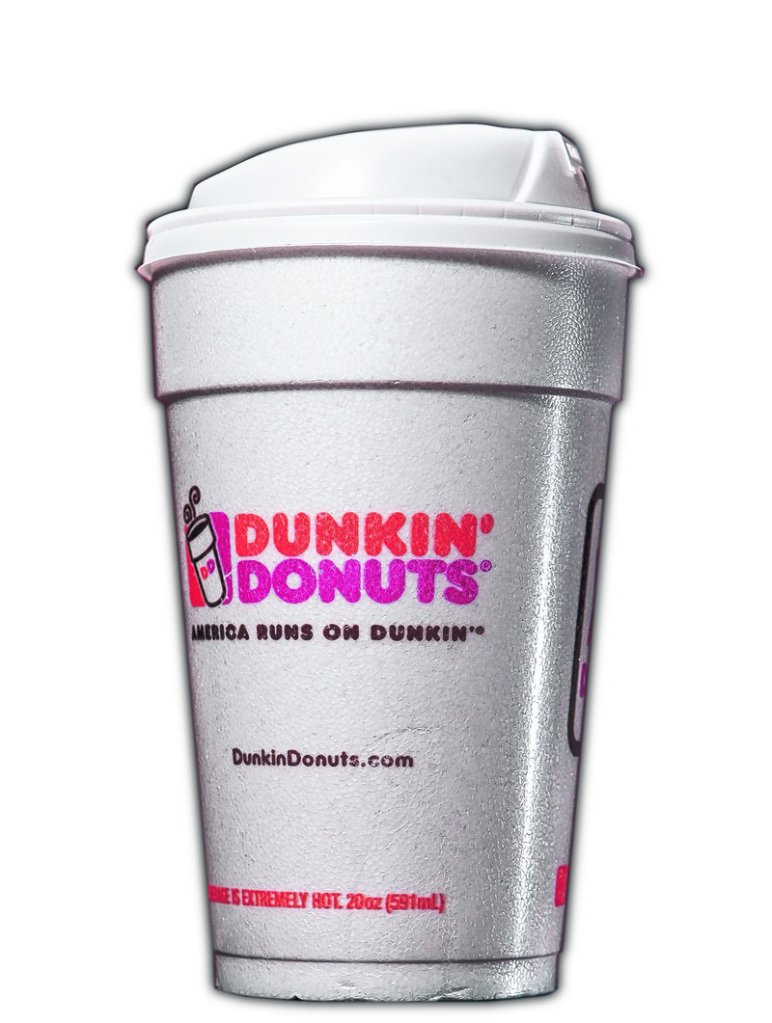PORTLAND — Three years ago, Dan Fuentes tried selling coffee at the Lobby Cafe on Congress Street out of paper cups, thinking it would increase his business with environmentally minded customers.
Instead, it only increased his expenses. Fuentes said paper cups cost twice as much as polystyrene foam, more commonly known as styrofoam.
“I tried to do the right thing, but it didn’t work out,” said Fuentes, who is trying to keep his coffee prices low. “(Paper cups) were considerably more expensive than styrofoam.”
Soon, business owners in Portland may not have a choice.
On Monday night, the City Council voted unanimously to direct its Transportation, Sustainability and Energy Committee to craft an ordinance to ban sales of plastic foam, a petroleum-based product that cannot be recycled. The council would have to approve the ordinance before it could take effect.
The committee, which would determine the specifics of any ban, also is considering forming a task force to study a ban or a fee on plastic shopping bags – a proposal first floated last year.
Non-recyclable plastic and polystyrene foam have long been the bane of environmentalists. Polystyrene foam is banned in more than 40 communities, mostly in California, the first state to consider a statewide ban.
According to the Environmental Protection Agency, Americans throw away 25 billion plastic foam cups a year, and each one would take more than 500 years to break down.
Foam is one of the most common forms of litter because it’s light and easily blown from trash barrels, said Abigail King, a policy advocate for the Natural Resources Council of Maine.
“I think it’s appropriate for cities to take (a look) at” banning it, said King.
Councilor Ed Suslovic, who sponsored the initiative, said the proposal was inspired by Portland’s school district, which in September will stop using foam trays, cups and containers in its cafeterias.
One of the largest businesses that could be affected is Dunkin’ Donuts.
Ed Wolak, who owns 15 Dunkin’ Donuts shops in southern Maine, including 11 in Portland, said customers should be given a choice.
“Our customers greatly prefer styrofoam,” Wolak said. “I’m not quite sure why (city officials) would want to ban it.”
Plastic foam food packaging has been banned in Freeport since 1990, to reduce nonbiodegradable litter and its potential effects on wildlife. Fines for selling foam range from $250 to $500.
Eric Conrad, spokesman for the Maine Municipal Association, said he knows of no other community in Maine that bans plastic foam.
Freeport Town Manager Dale Olmstead said there have been very few complaints about the ban. When it was proposed by middle school students, only McDonald’s actively opposed it, said Olmstead, noting that most businesses comply after receiving verbal warnings.
Fuentes and Marya Baren of Portland said the idea of a ban is admirable but they are concerned that the city would put itself on a path to become like New York City, where Mayor Michael Bloomberg recently proposed a ban on large soda servings.
“It’s a slippery slope,” Fuentes said.
Banning foam packaging in Portland wouldn’t put too much of a burden on restaurants if there were reasonable alternatives, said Dick Grotton, executive director of the Maine Restaurant Association, but any ban should be based on science, not national trends.
“It should be a well-thought-out proposal, not just a jump-on-the-bandwagon, me-too thing,” Grotton said.
Many restaurants in Portland have already stopped using plastic foam.
Adam Moses, manager of the Whitecap Grille on Market Street, said the restaurant doesn’t use foam, to be more eco-friendly.
“We have a beautiful city,” Moses said. “Why ruin a good thing?”
The city should think beyond plastic foam and tackle other single-use items, like plastic bags and utensils, said Seth Valliett, a resident who believes that a scientific case should be made for any decision to ban an item.
His friend Shamus Alley of Peaks Island said he would pay more to avoid using plastic foam.
“If I’m eating out, an extra 75 cents or a dollar isn’t going to stop me from going to a restaurant,” he said.
Foam plates and cups aren’t big sellers at Paul’s Food Mart, said owner Paul Trusiani, so he wouldn’t oppose the ordinance. He said that reducing the environmental impact of foam could outweigh any new burdens on businesses.
“We’d just stop selling them,” Trusiani said of foam plates and cups. “They’re not a big seller. People are already voting with their feet, so to speak.”
Restaurant owners who rely on plastic foam for their takeout orders have a different view.
Yan Lam, who owns the Oriental Table on Exchange Street, said a ban on foam trays would slow him down during the lunch rush, create longer lines and increase costs – which he couldn’t shift to his customers.
“If we have to use individual containers it (would) take forever,” Lam said. “We cannot raise the price. We have to eat it.”
Staff Writer Randy Billings can be contacted at 791-6346 or at: rbillings@mainetoday.com
Twitter: @randybillings
Send questions/comments to the editors.



